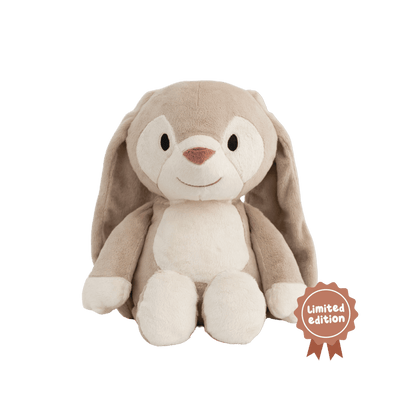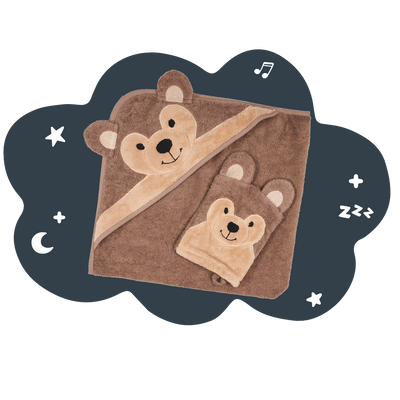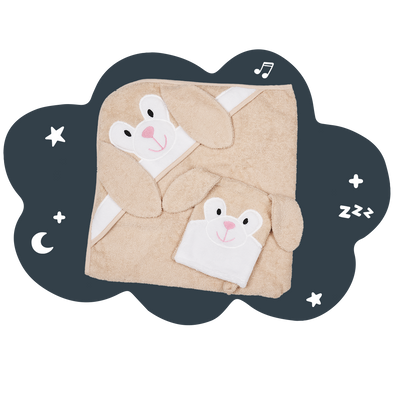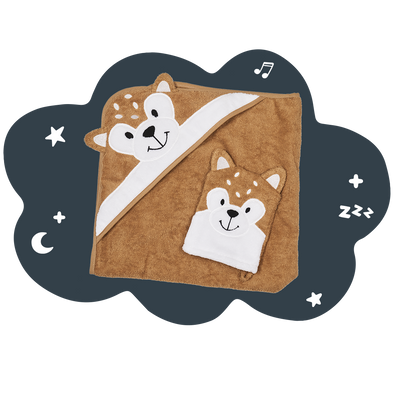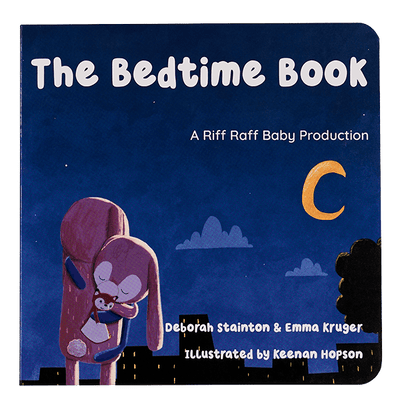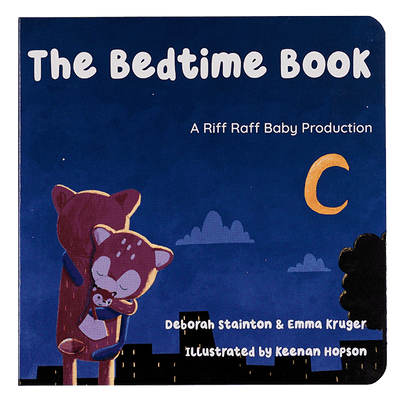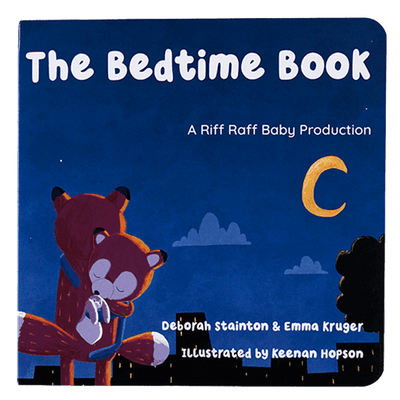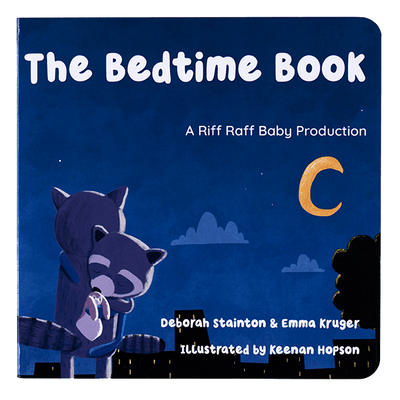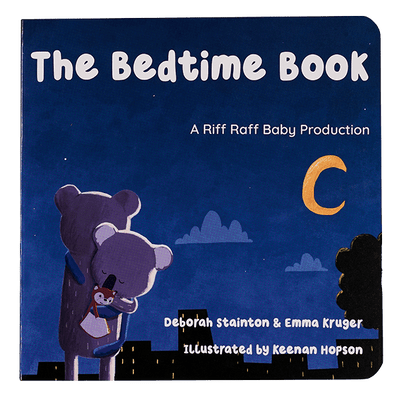
When Do Babies Sleep Through the Night?
Let’s face it: there’s nothing more precious and off-the-charts cuter than your baby. They possess some kind of magic where anything they do can make your day, but sometimes it’s an entirely different kind of power at night – the loud kind. If you’re on this page, chances are you’ve found yourself holding out on a few sleep-deprived nights, and you’re wondering: when do babies sleep through the night?
Though it takes a certain age to develop that skill, rest assured you’ll find a unique method so your baby can finally sleep through the night.
That’s why at Riff Raff Sleep Toys, we specialise in offering baby products that can help your baby achieve healthy sleeping habits without much intervention from the parent. If you’re browsing around for dummy comforters, baby security blankets, baby hooded towels, toys for cot, or sleep aid for toddlers, our Riff Raff Sleep Toys can assist parents in helping their babies sleep through the night.
What is considered sleeping through the night?
Sleeping through the night can mean different things to different babies. It’s important to remember that babies achieve this milestone at their own pace, and therefore, they must receive guidance and support tailored to their needs. Sleeping through the night also may not necessarily mean they’re getting uninterrupted sleep; with their tiny tummies, they may still need frequent feedings. It really depends on a variety of factors such as the age of the baby, their weight, and whether or not the mother is breastfeeding. The ultimate focus is getting your child the quality sleep needed to further their growth and development.
The National Sleep Foundation stipulates that babies start getting most of their sleep at night between the ages of 4 and 6 months old. By 9 months old, 70 to 80 percent of babies are developmentally able to sleep through the night.
When can you let your baby sleep through the night without feeding?
From birth to 3 months
You won’t be expecting newborns to sleep through the night without feeding as they need to feed frequently (every 2 to 3 hours), and they’ll make this really loud and clear. In the first couple weeks, it’s even possible that your little one will need to be woken up if they’re not doing so on their own volition – especially if they’ve become lighter than their birth weight. This is a critical period of development, and your baby will need all the support you can give them. So if you’re reading this through bloodshot eyes, take heart knowing that this time will pass, and revel in the simple joy of being wholly needed as a parent (you may just miss it in their teenage years).
You can also help them achieve better quality sleep by creating an environment conducive to sleeping, like having a white noise machine. Remember, this is the fourth trimester period, i.e., your infant is still getting used to a world outside the womb where they had spent many months hearing swishing noises inside. At Riff Raff Sleep Toys, we’ve designed our plush products with a built-in sound box that can play white noise with heartbeat to mimic that environment.
3 to 6 months
At this stage, your baby will likely sleep for longer periods. Their startle reflex decreases, thus allowing them to rest for extended periods. At the 3-month mark, where you used to feed them 2 to 3 hours now goes down to 3 to 4 hours. Then by 6 months, your baby is probably pushing it further down to 4 to 5 hours, and you may start noticing self-soothing tendencies – an essential skill to develop. If you’d like to assist your baby in forming healthy habits like self-settling, Riff Raff Sleep Toys can be a great sleep support to introduce. If worn by the parent long enough, these sleep toys can carry the familiar scent of the parent, which can be used to help babies sleep through the night when they’re old enough to sleep with toys in their cot.
If your baby is under seven months old, we recommend you follow Red Nose Australia (formerly SIDS & Kids) safe sleeping guidelines and keep any soft toys out of their cribs unless they are directly supervised. Our adorable plush toys come with a velcro strap that can secure the toy to the cot to prevent little ones from pulling the toy over their face.
6 to 9 months
This is usually the period where your baby’s sleep patterns can reach a somewhat consistent schedule, and it’s conceivable that they can sleep for as long as 10 to 11 hours every night. This can be a great time to encourage your baby to rely less on external comfort, but the weaning period may take a while, especially if your baby develops acute separation anxiety. If you reduce the amount of time you soothe them bit by bit, they may be able to sleep in the cot without much fuss. At the 7-month mark, your child may be more capable of self-triggering our Riff Raff sleep toys, which also emits a sleepy lullaby aside from white noise. This can help babies sleep through the night should they find themselves awakened at an irregular time.
Ages 9 to 12 months
A set sleeping routine should be in place by this stage. You can use a sequence of bath/shower, bedtime story, then an enchanting sleepy lullaby to send them off to dreamland. Having a routine helps give your little ones a sense of security so that when bedtime comes, they naturally feel tired and feel safe enough to relax and lean into the incoming drowsiness. You can pop out their Riff Raff sleep buddies, so they feel extra comfortable having their best friend by their side.
Buy the baby sleep toys available at Riff Raff Sleep Toys online store. Our toys help the baby develop essential skills like self-settling and also help promote better sleep for the entire family once the baby is dozing like a dream. Shopping online with us is extremely easy, and we offer deliveries for both Australian and international orders. Add our toys to your cart now!
Build boundaries
We recommend using a stamp chart listing their activities leading up to toddler sleep. For example, your stamp chart can look like this: Playtime – Bath – Bedtime Story – Sleep. By popping a stamp or a sticker next to each activity right after doing it, you can keep track of bedtime routines and ensure nothing disrupts the cycle. With a stamp chart, you can also limit the wiggle room your toddlers have for negotiating to do other activities. If they want you to read another book, you can simply point and say you’ve already done that. To help make things easier, we recommend having sleep toys like Riff Raff. Not only are they great as sleep aids, but they can serve as transitional objects to guide your toddler through routines. If you always pop out their best pal during bedtime, your little one will subconsciously accept the turn of events instead of rebelling against it – they want to sleep next to their best friend after all!
Break unwanted habits
It’s one thing to stay in the room for your toddler’s comfort and another thing entirely to sit for two hours watching them play around as you watch their performance. Gently but firmly reinforce that bedtime means lying down quietly. Phrases like ‘Lie quietly in bed or Mummy/Daddy will leave the room’ can be an effective card to pull out when encouraging good habits in toddler sleep. The important thing is that your little one should not be encouraged to be in a wired state; bedtime means winding down and snuggling next to their Riff Raff buddy.
At Riff Raff Sleep Toys, we strive to provide quality sleep aid products, so your toddler finds bedtime the most pleasant affair of the day, thereby ensuring they welcome it and get the rest they need. Shopping online with us is extremely easy, and we offer deliveries for both Australian and international orders. Add our baby sleep toys to your cart now to promote quality toddler sleep.
Safety Note: Always follow safe sleep guidelines and use under adult supervision with infants under 7 months.











